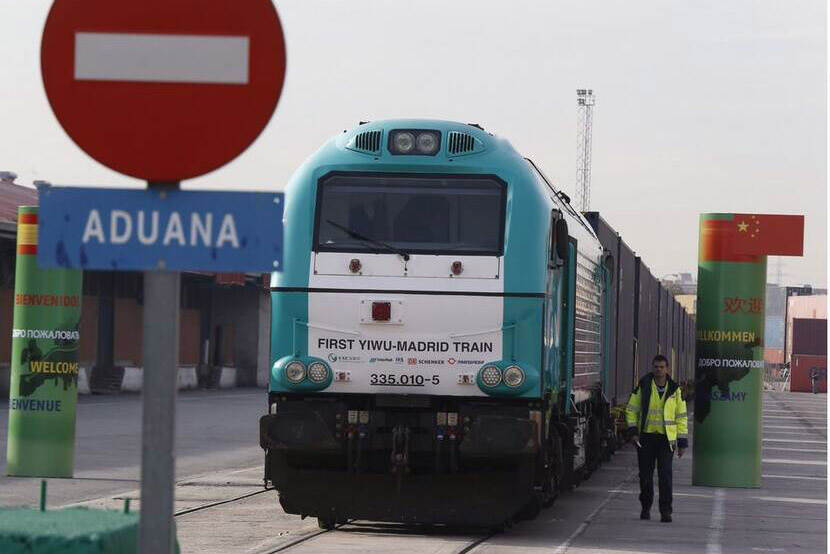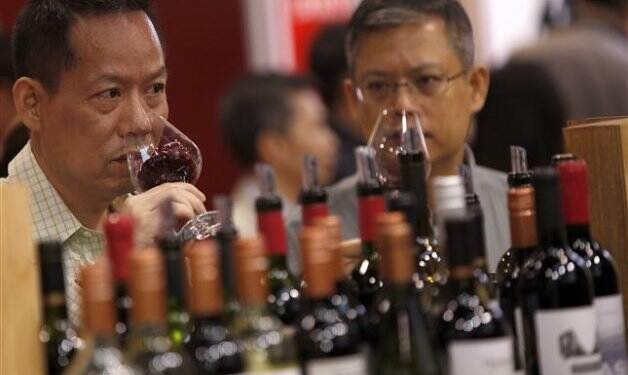Spain is clinging to China to push its agri-food exports
Spanish agri-food exports are increasingly looking to China to keep their business afloat, even in times of crisis, after the pandemic has failed to curb sales to the Asian giant.

The impact of COVID-19 has been felt in Spanish exports as a whole, which fell by 12.4% year-on-year between January and April. However, sales of food, beverages and tobacco were not affected, growing by 8.8%, according to the latest foreign trade figures.
By country, Spain is heavily supporting China, the sixth largest destination in the world for its agri-food products - with a share of 5.3% - whose sales practically doubled in the first four months of the year. This continues the trend observed in 2019, when the value of food and drink shipments to the Asian country increased by 95% with respect to 2018, to 2,156 million euros.
Good prospects
Carlos Barón, sales agent for Spanish products in China, says that, contrary to the “disaster” they feared at first, they have detected higher sales than they thought and “even higher than that this year’s forecast for many products”.
Apart from for the negative impact caused by the closure of the restaurants, in general no major distribution problems have been found, except for some related to delivery times, logistics prices or paperwork management.
Mr. Barón emphasizes that they have been able to "reap the rewards" of the previous work carried out in the country to promote sales via the Internet and the presence in "very high level supermarkets, with all the guarantees of security", something which in a situation of health crisis "gives a lot of confidence".
Meat products in the lead
At the top of the list of products exported to China are meat products, which accounted for 793 of the 926 million euros generated by food sales to that country until April. Compared to the same period in 2019, meat sales to the Asian giant increased by 191%, thus contributing to the positive agri-food balance.
China needs to import to meet its demand for pork due to outbreaks of African swine fever. If it used to buy it from the US at a lower price, this time it has had to turn to the Spanish and European industry because of the impact of the coronavirus in American slaughterhouses. Spain, a specialist in swine production, has benefited, while other countries such as Germany have also had problems in slaughterhouses.
The wine exception
On the other side of the trade balance with China are beverages, whose sales have contracted by 28% in the first four months, totaling 42 million euros. The wine sector has been particularly affected by the standstill in bars and restaurants, as it is not customary for the Chinese to drink wine at home, although analysts see some recovery in the coming months.

Future strategy
Supporting the sector, ICEX, the Spanish Agency for Foreign Trade, is maintaining a communication campaign for Spanish wines in China to improve “their quality and diversity” brand image. Sources from this institution point out that they are adapting their strategy to the reality of the market in this pandemic situation.
Experts expect that China will be the first country to overcome the economic crisis resulting from the COVID-19. Milagros Dones, from the research center Ceprede, emphasizes that "China will be a priority destination", in line with the "loss of weight of representation in Europe".
In this context, the agri-food sector is of great importance, especially the meat product segment, where "there has been a very important positioning of Spanish companies to the point of setting up infrastructures in China to process the product there”, she says.
Mrs. Dones argues that, for the coming months, "contracts with such complex destinations are already committed" and companies see China as "a bastion to maintain exports" and minimize the blow to overall sales.
Source: efeagro.com